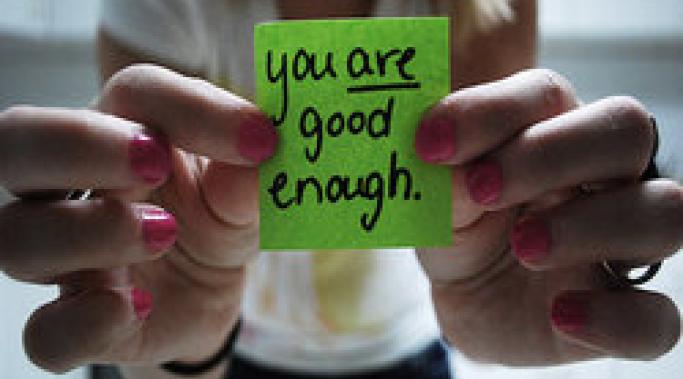Confronting weight gain on psychiatric medications is a major problem for many people consuming these types of medicines (Weight Gain in a Pill). It is almost as if the more your mental health improves, the more weight you gain. However, psychiatric medication weight gain can be coped with.
Mental Health Coping Skills
The stress of premenstrual syndrome (PMS) and the impact on women's mental health is a topic that applies to women who fear this time of the month due to extreme emotional behavior and discomfort (Hormones and Women's Mental Health). A mental disorder, such as my diagnosis of bipolar, consists of high ups and low downs -- a disorder filled with extremes. The combination of PMS and a mood disorder is riskier than PMS without a mental disorder. Recently, I have noticed as I near menstruation, depressive thoughts and emotions intensify to an extent that concerns me. To add to the apprehension of this monthly upheaval, there are serious disorders related to PMS that have major impacts on women's mental health.
Coping skills are important, and exploring unique coping mental health skills for bad days is key to recovering from a low period (You Can Practice Self-Care on a Budget). Being that no exceptional set of guidelines exist to rely upon when it comes to coping skills, it is important to explore unique ways to creatively cope with bad days.
I used to be a people pleaser but now I've learned to put myself first. When I was younger, I used to be the kind of person that people could take advantage of easily. When you display that as a young person, it's hard to change as an adult -- but it is possible to put yourself first and stop being a people pleaser.
I remember being a teenager -- calling that phase of life a challenging time is an understatement! Many teenagers need self-esteem help because not only are you going through physical changes that affect your mood and hormones, but you are also trying to find who you really are.
How do you do this when during the teenage years you're so influenced by others? How do you do this when it’s painful to go against your peers, and all you want to do is fit in? If you are unique and don’t conform to the norm, you start to feel like you’re not good enough (The Truth About Self-Esteem). How does one get through this transition period into adulthood? Here's some help for teenage self-esteem.
I used to wonder, are exercise and mental health related? Can it improve your overall mental health and be as helpful as antidepressants? In my recent experience, I’ve found the answer is yes. I have been through anxiety, depression and depersonalization (feeling a sense of watching yourself and feeling disconnected to others and oneself) and exercise helped to lift my mood during the dark days. The problem is, like many others might find, it’s a constant struggle to stay motivated and develop a love for exercise for your mental health.
Once you’ve experienced the horror of anxiety and depression you are thankful every day that you have your life back, and you start to make plans for the future but what you need to know is that mental health wellness is a lifetime commitment. The gratitude one feels after a breakdown is like no other feeling in this world. Naturally, as we regain our health, we crave change and work on improving our own lives. However, we need to make sure we don’t become complacent and fall back into similar traps of negative thought patterns that are dangerous for our mental health. We need to make sure we make a lifetime commitment to mental health wellness.
I've been attending Alcoholics Anonymous (AA) for about five months and the meetings have been a blessing in my recovery. For us young people, staying sober can be very difficult because drinking seems to be the "cool" thing to do. We can often feel like our lives are "over" in early recovery, and that we are going to be missing out or boring. When I thought about attending AA, I asked myself, "how can I possibly relate to someone who is over the age of 40?" However, in the past five months my attitude has drastically changed.
I am a planner and a worry-wort. Due to my anxiety, I always need to have everything planned out in a specific way and I have an extremely hard time when plans change. When I was in high-school, I had my academic career planned out and I had anticipated exactly what was going to happen in the future. I was going to graduate high-school, go to Ryerson University to study Business Management and eventually get a masters degree. Little did I know that I was suffering from mental illness and that my carefully planned future was going to take me in a different direction.
When I walked into my first substance abuse recovery meeting, "one day at a time" had no meaning to me. Because of my anxiety, I always thought days and even years in advance, future tripping and wanting alcohol to cope. I thought of never being able to have a drink ever again, and it terrified me. It wasn't until someone with multiple years of sobriety told me that all I had to do was live one day at a time that immediately, miraculously, I found a sense of relief.








